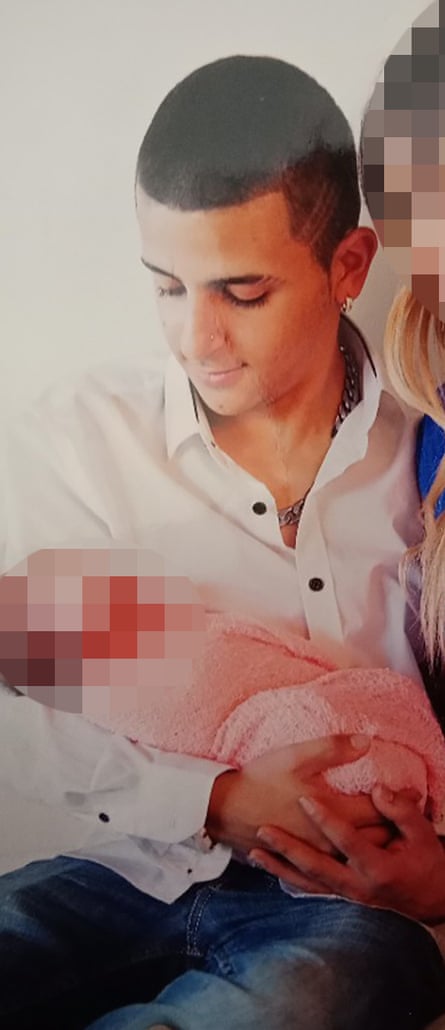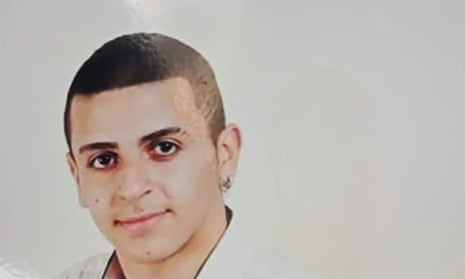When Sarwan Aljhelie died at the Yongah Hill immigration detention centre in Western Australia last week, it was after his fourth attempt at suicide. All four attempts were inside detention, where he had been for less than a year.
About three weeks earlier, shortly before his previous attempt, he had been transferred without warning or reason given, more than 3,000km away from his family and three children.
At that time, according to his family, instead of being placed on 24/7 watch, Aljhelie was returned from hospital to his room where guards goaded him about not doing it properly.
When he was found unresponsive in his room at Yongah Hill immigration detention centre a week later and taken to hospital, his family learned about it from other detainees. They say no one from the centre called them.
They are now exploring legal action against Australian authorities.
The death of Aljhelie, a 22-year-old Iraqi who arrived here eight years ago on a family reunion visa, was at the centre of a destructive disturbance which saw half a million dollars in damage and resulted in the chaotic, ad hoc dispersal of detainees across other facilities, apparently regardless of their involvement or current legal state or health.
Aljhelie was found in his cell by his roommate last Sunday evening. Paramedics were called.
In the hours that followed a raging fire gutted much of an entire compound. Detainees, who said they had repeatedly asked for help for Aljhelie and others, were handcuffed and moved to common areas and segregation cells to sleep. Dozens were put on buses to the airport and sent to Christmas Island. Some are believed to have been sent to Perth.
Reports from detainees across the country are that authorities are shipping some back to the mainland, to either Melbourne or Sydney.
Aljhelie’sfamily is in the Sydney suburb of Liverpool, close to the Villawood detention centre. His three children – including two daughters who lived with him – are also in Sydney. It was in Sydney that he became an adult, started a family, and got into trouble with drugs and the law.

“He was a very good and kind person, he never hurt someone,” his brother Fadee tells Guardian Australia. “He loved everything in this life. He loved PlayStations, he loved to go outside… But slowly, slowly I don’t know what was happening with him.”
Fadee is not clear on the details of Aljhelie’s rap sheet. He says his brother had a drug problem, mostly with cocaine, but also harder drugs.
Aljhelie spent some time in jail where Fadee says he was attacked and stabbed.
He’s not sure if there was a conviction for the cocaine his brother was caught with, which saw the government revoke his visa and send him to Villawood.
What he is sure of, is that his brother needed help and what he got wasn’t good enough.
“When he went [to Villawood] he started to say some stuff to my sister and to me, like: ‘Every time I’m looking for help they don’t give me any help, they gang up on me,’” says Fadee, with the assistance of an interpreter.
Fadee says he was told by a woman inside Villawood that guards there were also threatening, and particularly targeted Aljhelie. “Telling him they will get a male prisoner to sexually abuse him.”
On 7 August Aljhelie called his family in a panic – he had been taken from Villawood and put on a plane. He didn’t know where he was headed but assumed Christmas Island.
Eventually he landed in Yongah Hill. That was four weeks ago. Despite two previous attempts at Villawood, Aljhelie was able to try to kill himself again. He was taken to hospital and then returned to the centre, his family says.
“They just put him back in his room,” says Fadee.
Aljhelie’s family say guards allegedly goaded him on his return to his room after this third attempt on his own life.
“I have a message from his friends saying the guards were laughing at him, saying you’re too weak to do it,” says Fadee.
The allegation is similar to another Guardian Australia has heard from a Yongah Hill detainee, unconnected to Aljhelie’s family.
In response to that allegation a Serco spokesman said the company had no substantiated complaints from the past two months.
Last Sunday Aljhelie attempted suicide again.
“We found out from friends and relatives,” says Fadee.
“We called the detention centre, we called hospital, we called everyone. Even the hospital said he is here, and the doctor is going to give you a call. But the doctor didn’t call. After one day he called my sister and said your brother came to us and his heart had stopped and he is on the machines. You need to come to see him.”
Fadee flew over first, and his father and sister soon followed. Doctors told them their son and brother was brain dead, kept alive by machines. The Zoroastrian family spoke with faith leaders - their belief was as long as the heart was working there was life - and on Wednesday agreed to switch those machines off.
“Why was an officer not watching him 24/7, days after he tried to hurt himself?” asks Fadee. “They just leave him alone.”
The family of Sarwan Aljhelie are now exploring legal action, represented by Rick Mitry.
“Detainees in these centres are owed – according to NSW coroners court findings – a greater than normal duty of care regarding their health and wellbeing as they ‘must be … at a much greater risk of suicide than the general community’,” Mitry tells Guardian Australia.
The risk of self-harm is “magnified exponentially” in the situation described by the young man’s family, Mitry says.
Gerry Georgatos, suicide prevention researcher and national coordinator of the National Migrant Youth Support Service, says the revocation of Aljhelie’s visa “must be at the forefront” of the legal action.
“This Kafkaesque power must be removed from ministers, who in effect are no more than ordinary citizens,” says Georgatos, whose organisation has been assisting the family.
“The visa was not revoked by any court or tribunal but by an effectively unaccountable politician.
“What’s left of Yongah Hill is now a powder keg. It must be immediately closed down and the detainees who by any moral propriety are wrongly incarcerated should be released and availed to intense clinical and psychosocial supports.”
On Saturday Aljhelie’s roommate attempted to take his own life. Initial reports were that he succeeded, sparking panic among the detainees who knew him but were now spread across jurisdictions.
It’s not known whether he is under watch. The Department of Home Affairs has maintained all detainees receive appropriate medical care, including Aljhelie.
When contacted, the department said it had no further comment.
